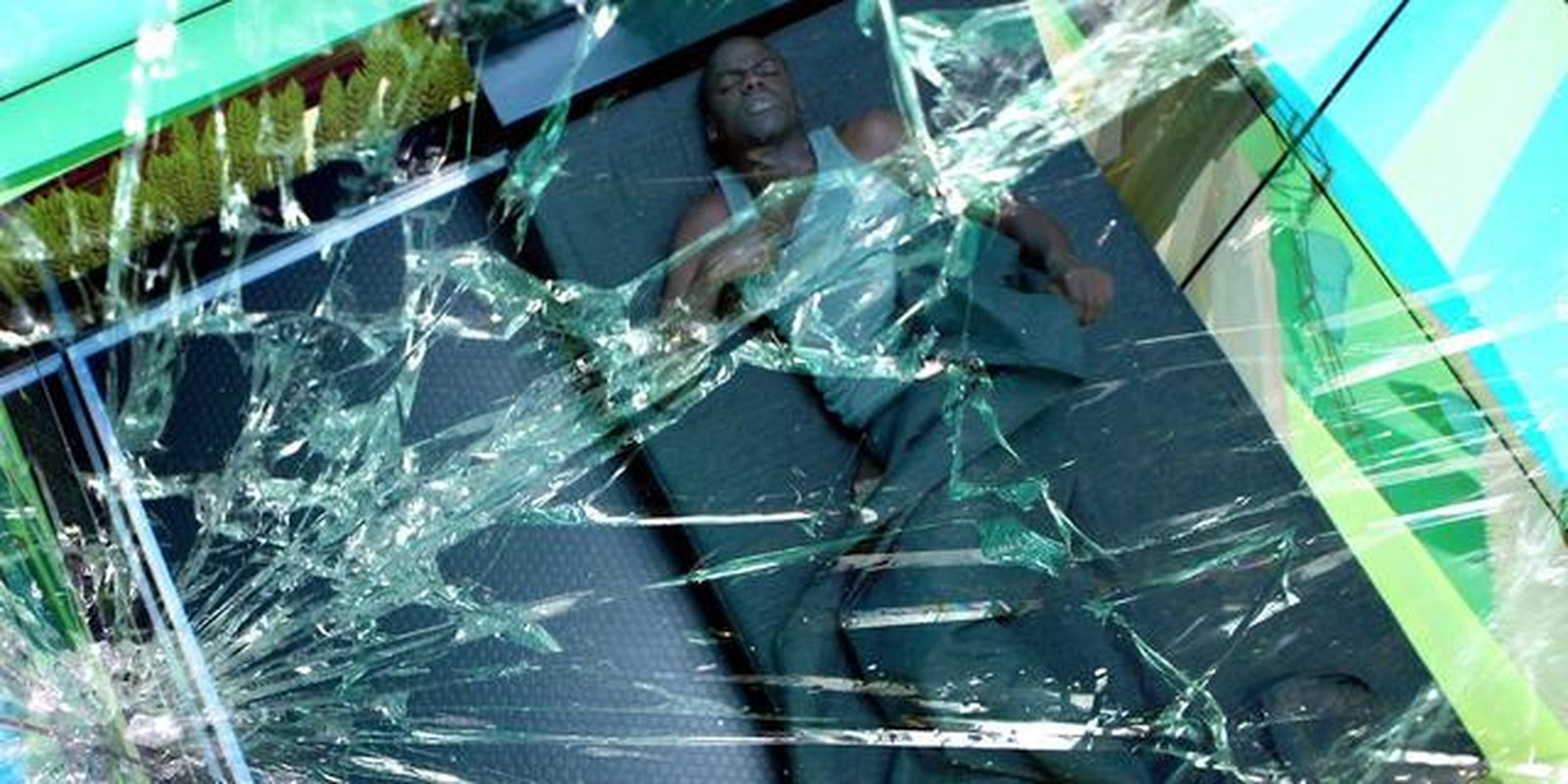Black Mirror, the U.K. show about how technology is going to be the death of us, has finally made it to Netflix, and there’s been much rejoicing.
The series, which originally aired on the U.K.’s Channel 4, consists of two short three-episode seasons, and while each episode focuses on a different plot, themes of mind control, surveillance, and distraction all figure into the larger series arc.
There are some parallels to the BBC’s techno-thriller Orphan Black, but Black Mirror really creates a world of its own. The black mirror of the title refers to those all around us: our phones, our TVs, our laptops. It’s creating scary stories for the Internet age: Black Mirror is sort of like Tales From the Darkside for this generation.
Here’s why you should be watching.
1) Charlie Brooker
Black Mirror creator Charlie Brooker’s sense of humor isn’t for everyone, and that’s a good thing. He’s also one of the best satirists working right now.
He wrote about the “dark side” of gadget obsession for the Guardian in 2011. Black Mirror might make us fear the future, but don’t forget about the now:
The present day is no less crazy. We routinely do things that just five years ago would scarcely have made sense to us. We tweet along to reality shows; we share videos of strangers dropping cats in bins; we dance in front of Xboxes that can see us, and judge us, and find us sorely lacking. It’s hard to think of a single human function that technology hasn’t somehow altered, apart perhaps from burping. That’s pretty much all we have left. Just yesterday I read a news story about a new video game installed above urinals to stop patrons getting bored: you control it by sloshing your urine stream left and right. Read that back to yourself and ask if you live in a sane society.
He claimed Black Mirror is “all about the way we live now—and the way we might be living in 10 minutes’ time if we’re clumsy. And if there’s one thing we know about mankind, it’s this: we’re usually clumsy.”
Fans of Black Mirror should also seek out Brooker’s 2008 show The Dead Set, which wondered what would happen if Big Brother contestants stopped being human and turned into zombies. He was also involved in two of the best shows you’ve probably never heard of…
2) Brass Eye and Nathan Barley
Brooker was a writer for criminally obscure late ’90s show Brass Eye, which skewered the British news media, and 2005’s Nathan Barley, which satirized vlog and startup culture. Brooker co-wrote Nathan Barley with Chris Morris, who also starred in Brass Eye. Their comedic chemistry and talent for cleaving open taboo ideas is apparent.
To feel the weight of Black Mirror’s narrative sense of humor and dread, one could benefit from taking in these shows as bookmarks of other satiric eras. More importantly, the humor doesn’t feel dated—these shows predicted much of the current media and Internet landscape: Nathan Barley’s titular character runs a Web startup and is obsessed with prank videos and empty culture. The oblivious newscaster of Brass Eye (played by Morris) wouldn’t feel out of place on FOX or CNN.
https://www.youtube.com/watch?v=06AS8SiY3rw
3) This is the kind of show you’ll need to watch twice
In the first episode, the prime minister has to screw a pig on live TV at the behest of an Internet troll, and that sets the tone. In episode 2, an American Idol-esque talent competition houses contestants in what is essentially a screen-filled prison, every daily action involving a swipe or non-verbal signal. The speech from the end of the episode is pretty heavy.
Episode 3’s “The Entire History of You” explores the moral implications of an implantable tech that lets you rewatch moments in your life. That episode is apparently being made into a movie by Black Mirror fan Robert Downey Jr., and each chapter in the anthology feels like it could be a two-hour film as well. Except the episodes don’t benefit from happy endings; they end right where they should, much like the show it’s been compared to, The Twilight Zone. There are narrative threads—is that the same blue car in every episode?—that will make you look twice.
The most effecting episode of season 2 might be “White Bear,” in which a terrified woman whose mind has been erased is followed and filmed by strangers’ phones. Writing about the episode in Boing Boing, Leigh Alexander asked, “To what extent can you stand by and watch horror before you are complicit, punishable?”
Much of Black Mirror asks us to stand by and watch the horror, whether it’s political, relationship-based, or a critique of the media. In the final episode of season 2, “The Waldo Moment,” a cartoon character becomes a political menace, and Brooker shows just how easily that could actually happen while we’re distracted. The idea was supposed to be for Nathan Barley, which again shows how prescient it was.
4) There’s going to be a Christmas special with Jon Hamm
The fantastically named Black Mirror: White Christmas debuts Dec. 16 and will feature Jon Hamm in a story about what would happen if you could “block” people in real life, like you do on Twitter and Facebook. It’s not entirely clear what Hamm’s role is, but we’re guessing he’s going to ruin some lives via technology.
Photo via Roland Tanglao/Flickr (CC BY-SA 2.0) | Screengrab via Netflix | Remix by Jason Reed


